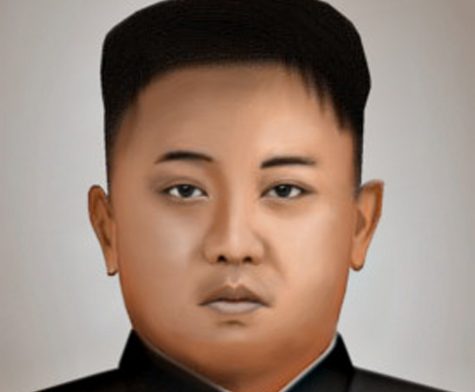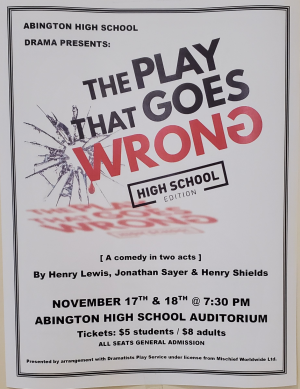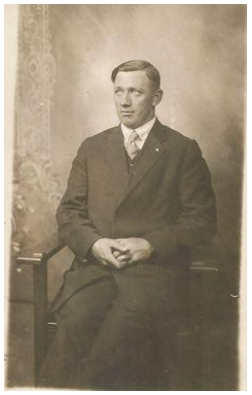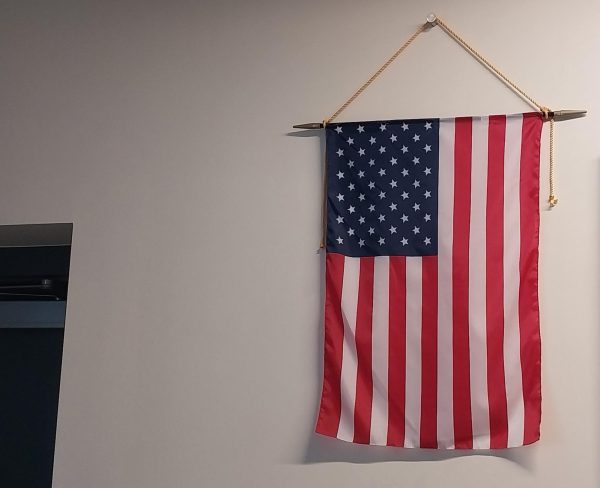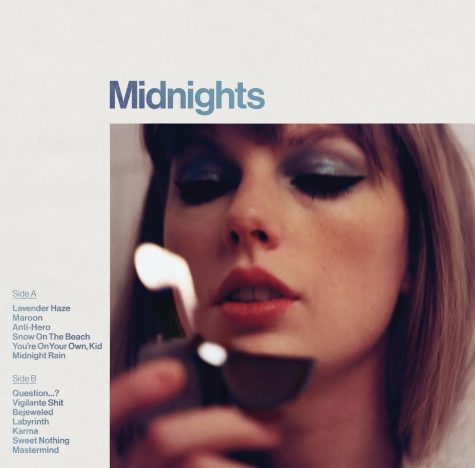The Freedom of Free Speech
Freedom of Speech Must Be Guaranteed to All
Wikimedia Commons. Public Domain via LCpl. R. Drew Hendricks
Kathy Griffin picks out a servicemember from the audience to participate in one of her acts during her final performance of the “Firing at Will Tour,” Camp Victory, March 19.
December 19, 2017
In the western world, the ability to criticize public figures is seen as a fact of life. The First Amendment of the Constitution guarantees this right to the people of the United States. However, some still question the extent to which criticism can be taken.
Today, the amount of criticism of public officials seems to be at an all-time high as several late night comedy shows, several of which are new to air, satirize people like senators and the president. Do such shows indicate a rise in the openness of people to criticize public figures, or has this criticism always existed, just unknown to the public?
The ability to criticize public figures is something that only recently became the norm. The United States likes to pride itself on free speech. However, it too was hesitant to allow free speech in its early days.
Under President John Adams the Sedition Act was passed, which was in direct conflict with the First Amendment. It was meant to weaken the Republicans and those who supported them by allowing for the punishment of those with conflicting ideals. They based this on British law which stated that freedom of expression only applied before the expression of ideals. This interpretation of free speech meant that while someone has the right to say something, they can still be punished for it afterwards. So a critique of a political figure was legal, but a person could still be jailed for it. The Jeffersonian Republicans fought against the act, but without any significant political power they were doomed to fail.
Such British policies had existed since the early days of the kingdom and prevented the criticism of kings and Parliament. These policies were also disliked by a significant portion of the British people. It is for this that the First Amendment of the Bill of Rights was so important to many Americans. It protected the United States from the tyranny that they had suffered under for centuries under the British system.
The United States likes to pride itself on free speech. However, it too was hesitant to allow free speech in its early days.
— Giovan Soares
Criticism of political figures remained a taboo topic for years after the Declaration of Independence was signed. A great example of this is Nazi Germany in the 20 century. Under that brutal regime, those who were outspoken against Hitler were at his mercy. In Nazi Germany the Gestapo and the Security Service led a reign of terror against any who did not support the Nazi agenda. The Nazis suppressed speech, press, religion, anything that went against their values or that had the potential to subvert their cause.
Similar things happened in the Soviet Union, especially under Joseph Stalin. In the Soviet Union, order was maintained by extensive political oppression and the limitation of expression. Any and all contradictory opinions were met with harsh punishments such as being sent to a Gulag or work camp in Siberia, execution by the government, and the removal of citizenship rights. Stalin’s regime killed millions and moved to suppress opposition at all costs.
Today these affronts to human rights continue in North Korea under the brutal Kim Dynasty. The tradition of work camps and summary executions the were popularized in the 20 century by the likes of Hitler and Stalin were continued with the Kim Dynasty in North Korea. They continued the repression of opposing political ideals and committed travesties against both freedoms of expression and humanity.
The right to speak freely without fear of legal or criminal repercussions is something that is seen as a guarantee in the United States. If these freedoms are taken away, then how long until we become the tyrannical regimes of old?
Many in the United States have been angered by late night comedic talk shows, and satirical political commentaries by other influential figures. This anger might be seen as justified in certain cases when it is believed that public figures have gone too far, such as Kathy Griffin’s infamous photo of her holding a bloody depiction of president Donald Trump’s decapitated head, which drew public outcry and was widely condemned.
However, even in such a case where many thought that political satire had crossed the line, Kathy Griffin still was within her rights as she made no direct threat to the president.
While recently Kathy Griffin has claimed that she has been blacklisted for her use of free speech, there has been no official blacklist against her, nor has she faced legal repercussions. Her current problems are not a symbol of the loss of free speech in America and should not be taken as such unless she experiences unjust legal repercussions.
The case with Kathy Griffin is a rather isolated one. Not supporting her show is an appropriate way to react when a person finds someone’s expression unfavorable. Instead of unjust—and unconstitutional—legal action, people can choose not to support what they do not agree with. Also, shows like the Daily Show and Last Week Tonight with John Oliver should be praised. Regardless of their message, they represent how far society has come in allowing freedom of expression for all.


